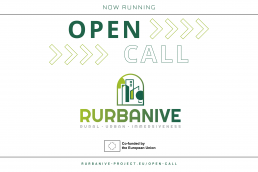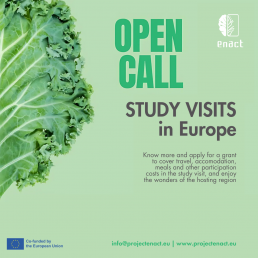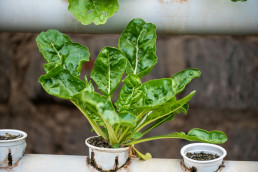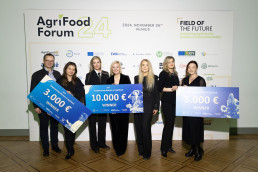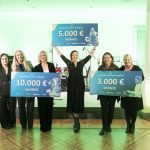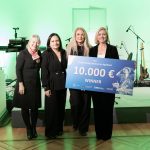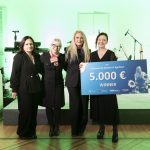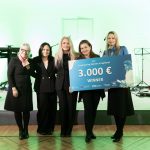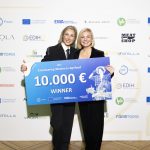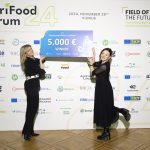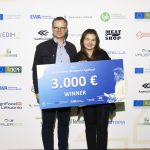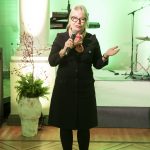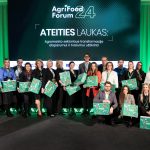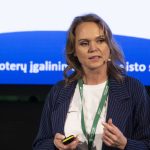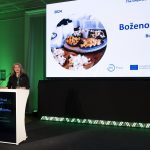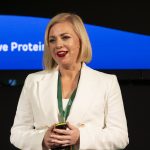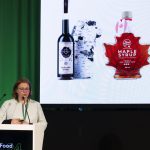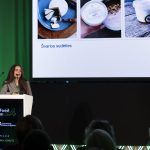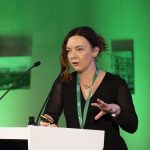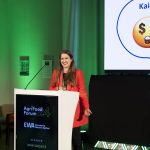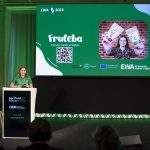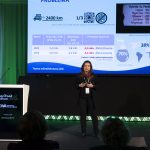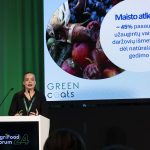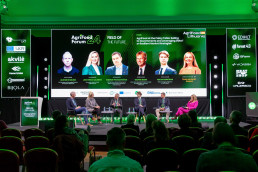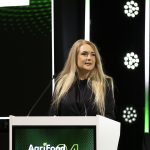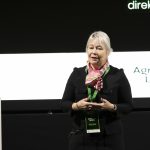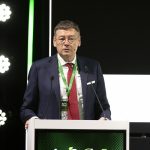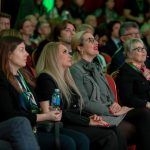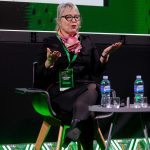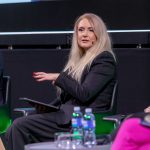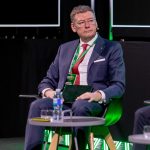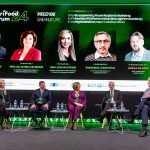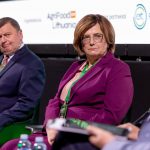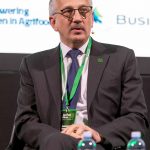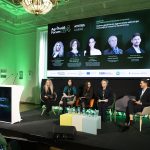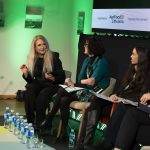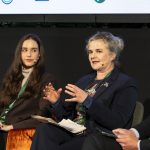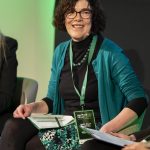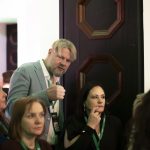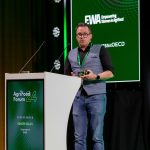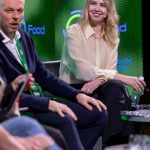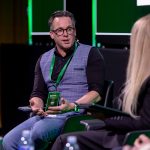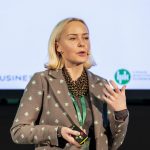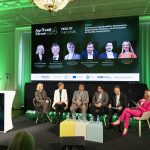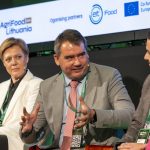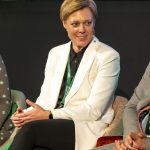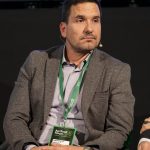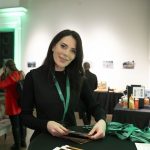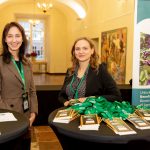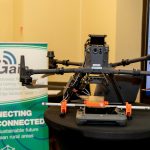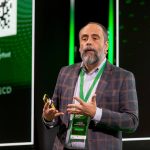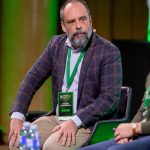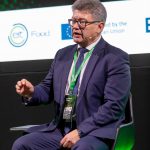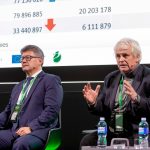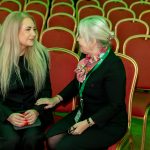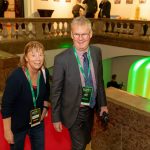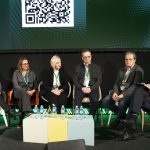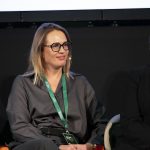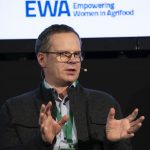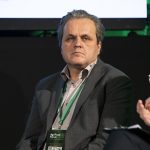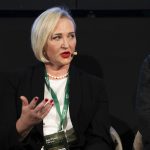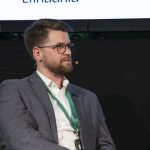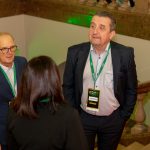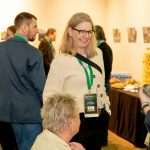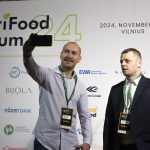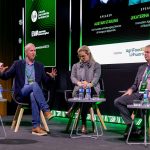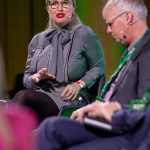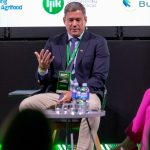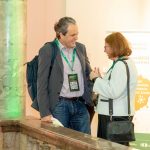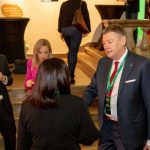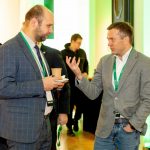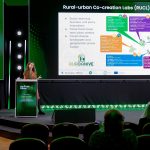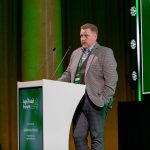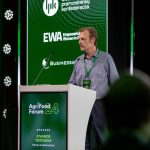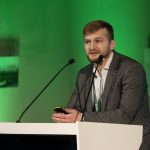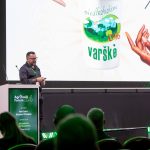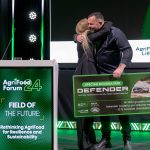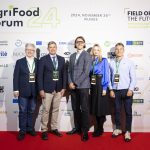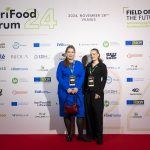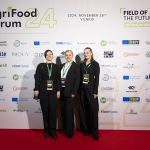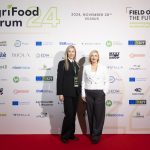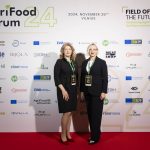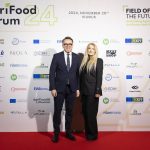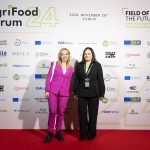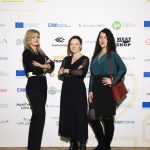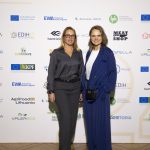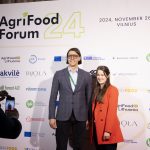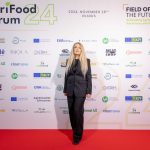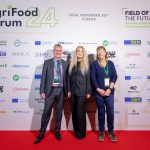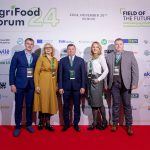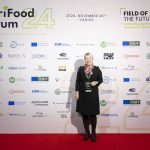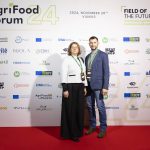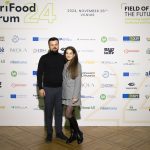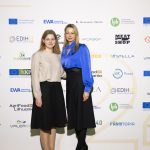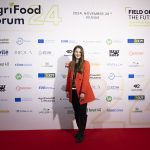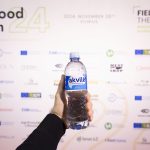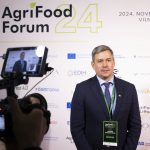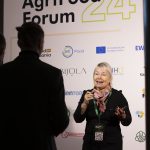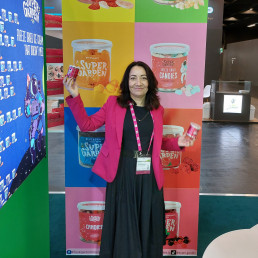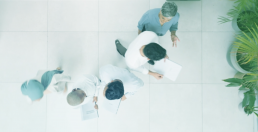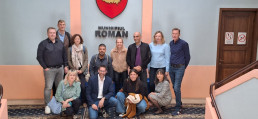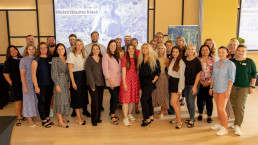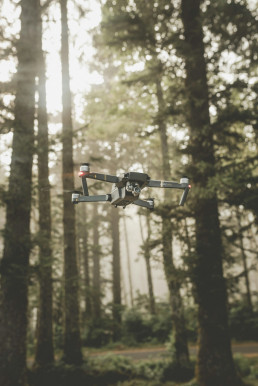RURBANIVE launches Open Call to transform rural-urban connectivity
Offers up to €100,000 per project in funding for innovative solutions!
In an effort to fuel the growth of digital solutions for rural-urban synergies and to maximize project impact, RURBANIVE has officially launched its Open Call for projects. With a budget of €600,000, RURBANIVE’s Open Call aspires to fund innovative and disruptive ideas that will help transform communities and boost the well-being and economy of rural-urban areas.
RURBANIVE invites consortia of 2-4 parties, including at least one technology and service provider and one end-user, to submit proposals that address societal and environmental challenges. These challenges span a variety of critical areas such as improving logistics and shortening value chains, ecosystem and biodiversity restoration, regional circular bioeconomy development, user engagement and empowerment, culture and heritage promotion, and enhanced mobility.
Each selected project stands to receive up to €100,000, with individual partners eligible for funding between €20,000 and €60,000. This financial support aims to accelerate the development and implementation of innovative solutions that bridge the gap between rural and urban communities.
Bridging Communities with RUEs
More specifically, applicants are expected to propose Rural-Urban Enablers (RUEs), meaning digital solutions or other types of advanced technologies, based on the six identified domains of RURBANIVE:
- Improving logistics, and shortening value chains: refers to the flow of resources between rural communities and urban hubs, investigating new ways by which reciprocal growth can be achieved.
- Ecosystem and biodiversity restoration: includes degraded, arid soil ecosystems, like quarrying operations, targets in local plant community reinstallation (drought tolerant plant species), and integration of natural and agricultural ecosystems in a uniform landscape by introducing novel, microbiome-based, restoration technologies and processes.
- Regional circular bioeconomy development: includes optimizing regional residual biomass streams by data collection, visualizing resource flows, and developing innovation pathways based on environmental, social, and economic factors in sustainable and resilient city-region areas.
- User engagement, empowerment, society and territorial awareness: centred on empowering individuals and communities, particularly in rural and underserved areas, by fostering a deep connection to their environment and society.
- Culture, landscape and heritage access and promotion: focuses on enhancing the appeal and accessibility of rural cultural and natural heritage for urban visitors, and potentially prospective future inhabitants for the rural areas.
- Enhanced mobility: refers to mobility patterns of citizens, existing infrastructure and other accessibility constraints to investigate how commuting between rural and urban communities takes place. Enhanced mobility paves the way for a holistic approach towards mobility, where all people, and especially Vulnerable Road Users (VRUs), can optimally utilize the urban space and reach their destinations on time.
The Open Call intends to enrich RURBANIVE’s Community Store, a digital hub offering enhanced capabilities for accessing solutions and services. By incorporating at least six new RUEs, the initiative seeks to expand the reach and impact of these enablers across diverse regional contexts and socio-economic conditions.
The implementation of selected projects will follow a structured 12-month timeline divided into three phases between September 2025 and August 2026.
Proposals for the Open Call must be submitted digitally through the opencalls.fund platform by March 31, 2025, at 17:00 CET. For more information, interested parties can visit RURBANIVE’s official website.
To ensure the quality and fairness of the selection process, RURBANIVE is seeking experienced evaluators. If you are interested in being an evaluator you can apply here.
OPEN CALL: study visits in Europe
Are you ready to become a better professional? Study visits provide a fantastic chance to learn from the best in the industry and discover innovative methods and success stories that you can implement in your company.
The “ENACT” project invites you to join study visits across Europe, offering an unforgettable experience to broaden your horizons and gain valuable insights. Here's what you'll gain:
- Exchange knowledge. Collaborate with professionals from diverse regions and industries, learning from Europe's top success stories.
- Boost your skills. Sharpen your expertise by exploring cutting-edge techniques, advanced technologies, and efficient workflows.
- Expand your network. Meet like-minded peers, industry experts, and stakeholders. Build strong connections that could lead to exciting collaborations and partnerships.
- Find practical solutions. Learn how others have successfully tackled challenges and gain fresh ideas to address your own.
Don’t miss this incredible opportunity to grow your skills, expand your network, and bring back actionable solutions to your organization. Register now: https://bit.ly/4jzoSvy
Get funding and implement food innovation projects in Africa!
INCiTiS-FOOD is a European Union-funded initiative aimed at promoting the development of inclusive, sustainable, and innovative food systems in African cities and towns. The project seeks to empower local innovators and communities to create solutions that address global food supply challenges.
Now you have the opportunity to contribute to this significant initiative and secure funding to bring your ideas to life!
Learn more about the application process at the online webinar taking place on March 5th. During the event, we’ll discuss how to apply, the eligibility criteria, and the opportunities available for local innovators striving to make a difference.
The event will also feature distinguished speakers—stay tuned as we will introduce them soon!
Don’t miss the chance to be part of this transformative journey. Register today to secure your spot: https://lnkd.in/dCUNGbHh
Together, we can create a brighter and more sustainable future!
The success story of Super Garden: revolutionizing the snack industry
The small but vibrant city of Panevėžys, Lithuania, has become a harbor of innovation and sustainability. Here, a mother’s innovative idea for healthy, tasty snacks for her children has blossomed into the thriving business “Super Garden.” Now, with support from the EIT Food community, it’s about to reach broader markets—beginning with Germany.
As its name suggests, “Super Garden” offers a variety of garden goodies—berries, fruits, vegetables—and beyond (even cheese), all preserved through a unique, innovative method: lyophilization, or freeze-drying. Laura Kaziukonienė, the founder of “Super Garden,” describes freeze-drying as one of the most effective food preservation methods worldwide: “It preserves up to 98% of the nutritional value and ensures a long shelf life without special storage conditions. This results in nutrition-rich products that also address food waste. For example, a fresh raspberry might spoil in two days, but a freeze-dried raspberry can last up to two years at home, ready as a healthy snack anytime.”
Best of all, these snacks are a perfect alternative to sugary products, with no additives, preservatives, added sugar, or other unnecessary ingredients—making them a great addition to our daily diets.
“Almost anything can undergo freeze-drying, except fats. Products like chocolate, butter, olive oil, and other fatty items aren’t suitable for this process. However, foods like meat, fish, dairy, and even liquids—including alcohol—can be successfully freeze-dried,” says Kaziukonienė. As a result, “Super Garden” has experimented extensively to create new flavors and now proudly boasts the world’s largest assortment of freeze-dried products, with over 300 items and more than 1,500 variations. There is a huge demand for unique natural products, and that’s precisely what “Super Garden” aims to deliver.
How did the idea come about? Interestingly, Laura found inspiration right at her kitchen table. When her kids were eating cereal with freeze-dried berries—at the time, she didn’t even know what they were—she noticed they would pick them out to eat first. She decided to buy more but couldn’t find any in the local market. That’s when she started researching this special processing method and came up with the idea to offer these berries as a product. “I started with packaging since I didn’t have a freeze-dryer. I created a brand, bought in bulk from Germany, repackaged, and, once I saw the market demand, purchased my first freeze-dryer. Things developed quickly from there,” she shared.
Working with Kaunas University of Technology scientist Jonas Damašius on snacks made from freeze-dried powders, which they later named BITES, she learned about the EIT Food program and decided to participate.
Their first attempt paid off: after intense competition, “Super Garden” won second place, validating their efforts. The most rewarding part was the attention from major companies, including Nestlé, which reached out to them. “Although nothing materialized, the fact that a major player from Switzerland’s research department contacted us confirmed that we were doing something intriguing,” Laura recalls.
This year, five years after their win, the EIT Food team in Germany reached out again. “They found us in their database, said they were looking for healthy snacks, and invited us to participate in REWE’s supplier selection process. Through EIT Food’s Germany contact, we went to Vienna in October, joined a meeting, and now we’re working together—it’s still very recent.”
Now “Super Garden” is on the brink of becoming part of REWE’s network of 50 chains, poised to expand into the much larger German market. This partnership marks a major milestone, enabling the company to reach a broader customer base within one of Europe’s largest markets and introduce its innovative, freeze-dried products to health-conscious consumers across the country.
RURBANIVE event – a glimpse into rural and urban synergies in an innovative ecosystem
On October 30, a virtual event “RURBANIVE – Rural and Urban Synergies in an Innovative Ecosystem”, organized by the cluster and digital innovation center, AgriFood Lithuania, and Kėdainiai Municipality, took place. The event introduced the EU-funded RURBANIVE project, which aims to create the synergy between urban and rural areas, improving quality of life, fostering social innovation, the circular bioeconomy, culture, and public engagement, and developing new policy recommendations.
The goal of RURBANIVE is to strengthen social ties and collaboration between rural and urban areas, paving the way for mutual interactions and reducing the gap between them. This dialogue offers stakeholders an opportunity to assess current processes and envision future scenarios that will further contribute to synergy development and policy recommendations.
At the heart of the RURBANIVE project – one of the country’s strongest economic regions
The project has selected Kėdainiai Municipality—one of the strongest economic regions in the country—as its focus region. The event welcomed members of the Kėdainiai community, technology providers, agricultural sector representatives, the academic community, regional administration officials, and representatives of business and non-governmental organizations.
During the event, the Director of Administration at Kėdainiai municipality, Gintautas Muznikas, delivered a welcoming speech. He congratulated the project’s initiators and participants, inviting everyone to join and support the project’s development, the way Kėdainiai Municipality is already actively contributing. G. Muznikas also emphasized that the project developed by AgriFood Lithuania DIH partners holds exceptional importance for fostering rural-urban synergy in the Kėdainiai region, with a huge potential to significantly improve residents’ quality of life.
Consortium partner AgriFood Lithuania introduced the project’s main objectives and goals, aligned with EU targets for regional development in Kėdainiai. The presentation concluded with a discussion on the project's engagement opportunities and future perspectives. The event attracted attention not only from the public, regional business, and administration representatives but also from professors at Vytautas Magnus University, who are expected to contribute to the project’s development in the region.
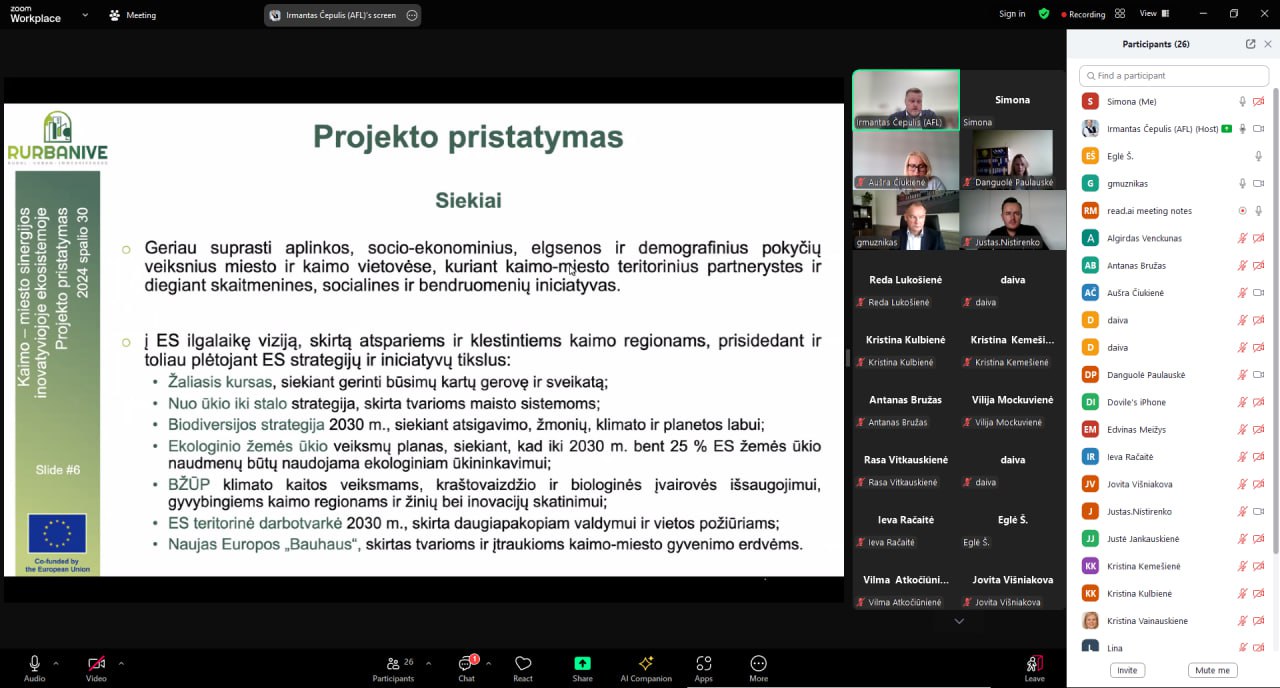
Encouraging public engagement
Attendees were also invited to participate in a RURBANIVE survey to encourage public engagement and gather insights into community needs, challenges, and potential benefits in the region.
One of RURBANIVE’s primary goals is to empower the Kėdainiai region’s community by bringing together initiative groups, organizing co-creation workshops to discuss regional needs, agrifood sector development opportunities, investment and logistics chain issues, and improving circular bioeconomy processes. The project also plans to establish “Startup Villages” in the region, featuring a digital space to ensure access to data and essential information, encourage sharing of ideas, knowledge, and best practices through digital technology and innovation, and foster discussions and policy recommendations.
We invite everyone interested to join this project: “Discover unique, tailored technological solutions to improve your life in the local community,” “Engage – Participate – Create.”
For more information about the project, visit the AgriFood Lithuania DIH and RURBANIVE project websites. Join us and follow project progress on social media.


First-year progress unveiled in the “SoulFood” consortium
This week, the “AgriFood Lithuania” team participated in a two-day consortium event in Romania, held by the “SoulFood” project partners. We are delighted to be part of such social initiatives in the agrifood sector, as it allows us to address real challenges faced by the entire food chain.
The goal of the “SoulFood” project is to reduce food waste and strengthen the connection between producers and social food distribution initiatives, ensuring that food from primary production is reused for vulnerable groups. Currently, innovative digital tools are being tested to help effectively achieve these goals.
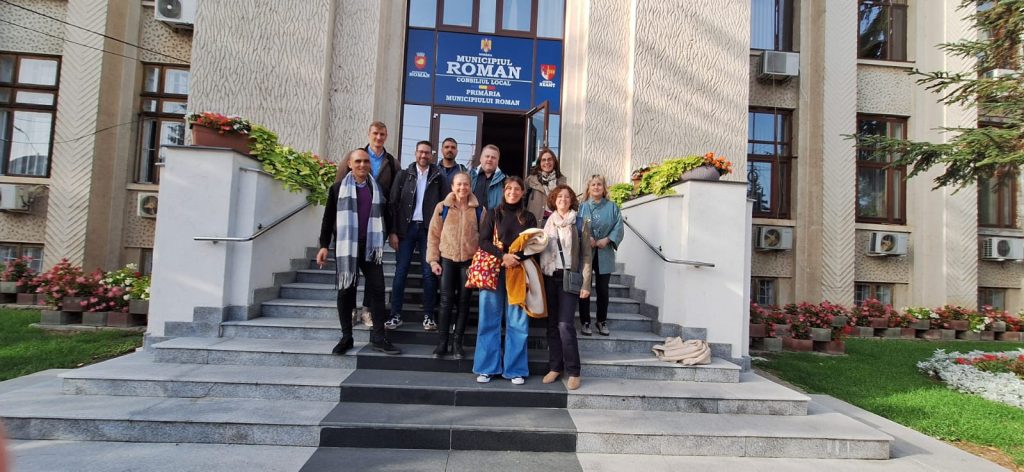 During the consortium, together with our partners, we reviewed the first-year progress of the project – how we are adapting innovative tools to promote more sustainable agricultural and food production, and how we are strengthening the relationship between producers and food distribution initiatives. We also shared key insights and knowledge gained from previous learning events, discussions, and webinars, and outlined the project’s future perspectives.
During the consortium, together with our partners, we reviewed the first-year progress of the project – how we are adapting innovative tools to promote more sustainable agricultural and food production, and how we are strengthening the relationship between producers and food distribution initiatives. We also shared key insights and knowledge gained from previous learning events, discussions, and webinars, and outlined the project’s future perspectives.
The “SoulFood” initiative is important not only from an environmental perspective but also from social and economic aspects. We are eager to see the changes it will bring to the agrifood sector.
EWA Masterclass in Lithuania: empowering female leaders in the agrifood industry
Last week, ten ambitious innovators of the Empowering Women in Agrifood (EWA) programme gathered for the second, knowledge-rich event, the EWA Masterclass. The goal of this Masterclass was to accelerate the growth of women’s entrepreneurship in the agrifood industry by bringing them together with their mentors for a day full of invaluable insights, new connections, and practical knowledge.
The EWA Masterclass, part of the Empowering Women in Agri-Food (EWA) programme, was held in Lithuania for the third time. On August 21, it welcomed women innovators and their mentors to the Vytautas Mineral SPA conference centre in Birštonas, Lithuania. The programme aims to empower early-stage female entrepreneurs to leverage their leadership and entrepreneurship skills to overcome challenges and achieve success, providing them with the knowledge and confidence needed to effectively launch and sustain their businesses in the agrifood sector.
On this full-day training, participants developed practical skills in team-building, financial management, regulatory compliance, and innovation. Through networking sessions and practical workshops, they improved their public speaking skills, drafted promotional messages, engaged in financial planning, and developed effective communication strategies. They were also introduced to European Union regulations and the new "Green Deal" and "Farm to Fork" strategies.
Classes and workshops fostering leadership and entrepreneurship
The event opened with AgriFood Lithuania CEO and Lithuanian #EWA ambassador Kristina Šermukšnytė-Alešiūnienė wishing participants a productive day, courage, and strength to face challenges. In the first session, Virginija Lukšienė, Director at EKOAGROS, discussed agrifood regulations, sustainability practices, and environmental impact, providing practical exercises with case studies on compliance and sustainability.
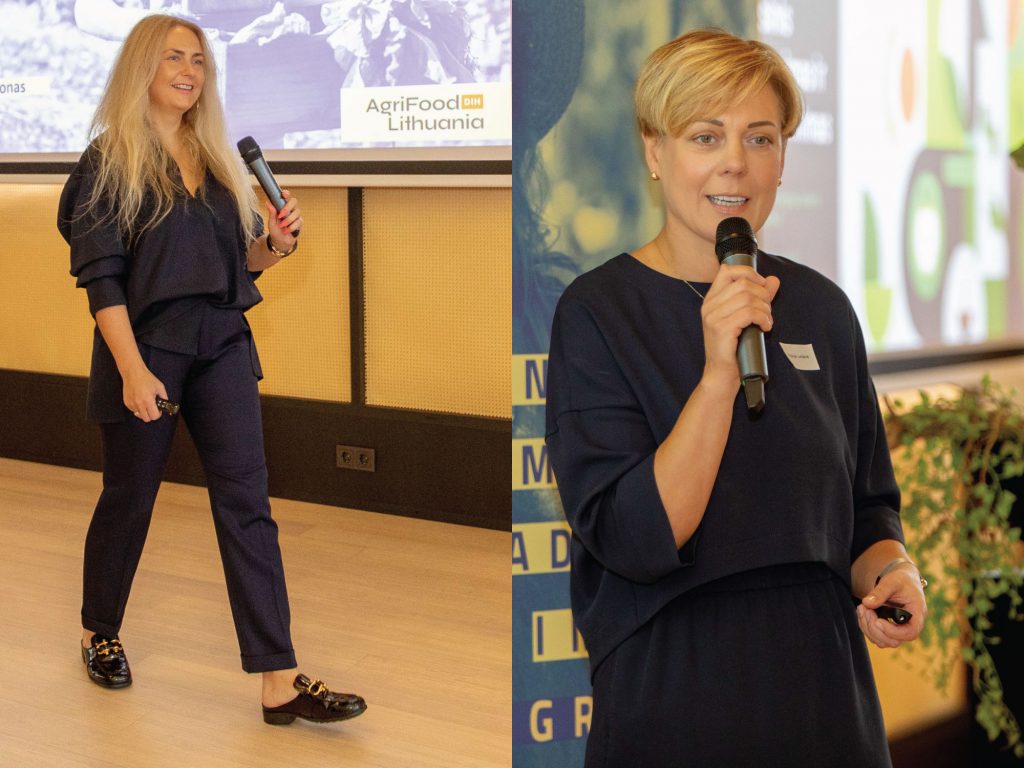
In the next session, Oksana Šimoliūnaitė, Product Manager at Kauno Grūdai, introduced pricing and financial planning for agricultural and food products, sharing relevant case studies from Kauno Grūdai products. Participants learned how to set the right product price by researching the market, adding a markup, or focusing on customer value while understanding expenses. They applied this new knowledge in a workshop where they created a simple pricing and financial plan for their products.
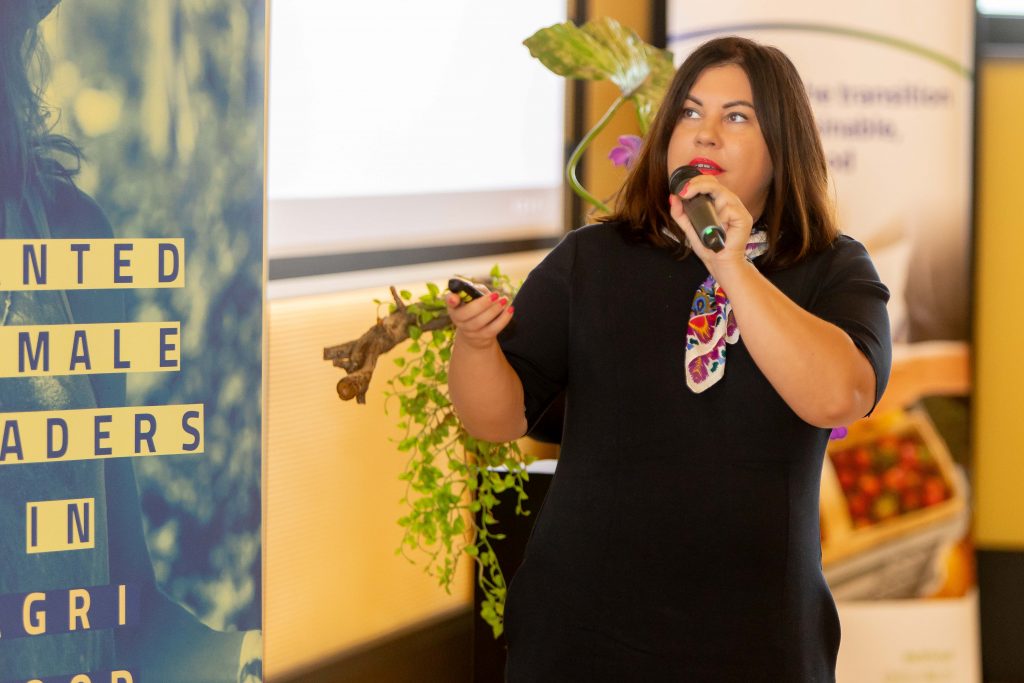
Dr. Karolina Trakšelytė-Rupšienė, Coordinator at Innovation Agency Lithuania, BioTech Lab, shed light on the latest trends and technologies in the agrifood sector, as well as the new "Green Deal" and "Farm to Fork" strategies, with case studies of current innovations in the sector. Following this session, Milda Karčiauskaitė, EIT NCP Programme Coordinator at NCP Unit, shared essential European Institute of Innovation and Technology (EIT) programs for every startup. In a workshop led by Gytis Junevičius, President of the Lithuanian Cluster Network, participants honed their leadership skills and prepared an "Elevator Pitch" to present their innovative ideas.
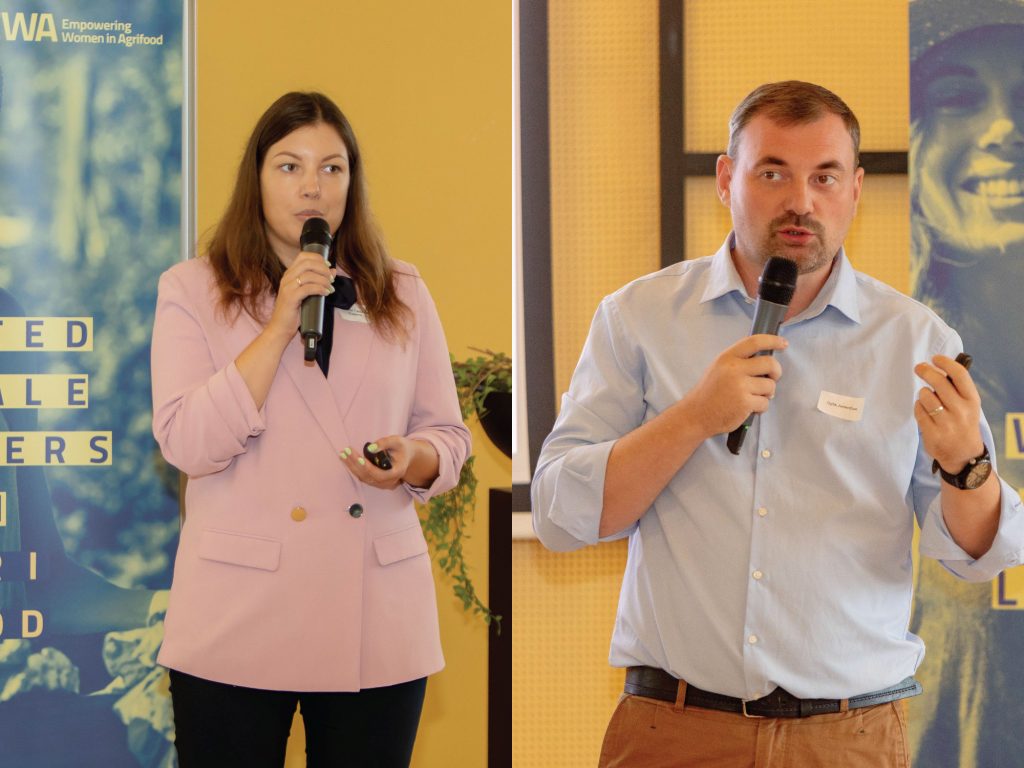
Additionally, Gabrielė Madzeliauskaitė, Supply Chain Planning Manager at Kauno Grūdai, discussed food safety and supply chain management and led a workshop on developing a personal product and/or service supply chain in the agrifood sector. Lastly, Gediminas Kvietkauskas, CEO at East West Agro (EWA), shared communication strategies, motivation, and personal development opportunities for agrifood innovators. In his workshop, participants learned how to effectively convey their startup's value proposition, mission, and vision.
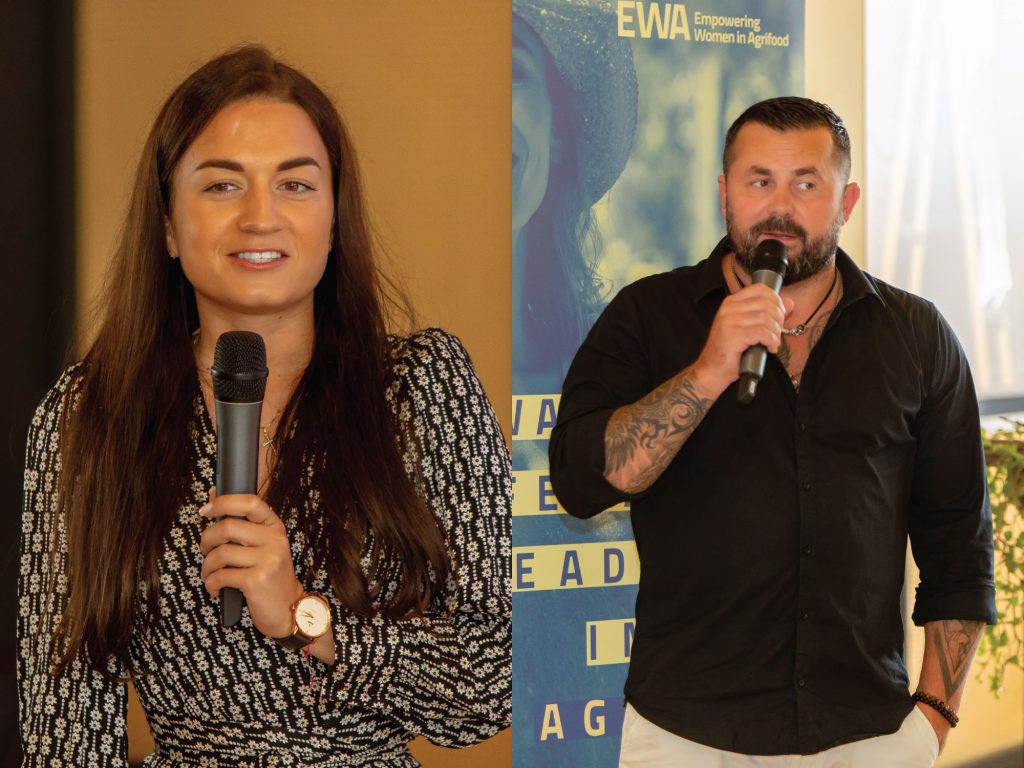
The fruitful day concluded with a joint dinner where innovators, mentors, and speakers had the opportunity for informal conversations, discussions, exchanging ideas, experiences, and offering advice. This Masterclass provided a valuable chance to enhance leadership and entrepreneurship skills and network with women entrepreneurs in the agrifood sector.
ICAERUS is launching its 2nd PULL Open Call
The ICAERUS project is launching the second round of PULL OPEN calls for Farming, Forestry and Rural Challenges on July 8, 2024 with funding available for 6 innovative ideas!
ICAERUS is a project launched July 2022 and funded by Horizon Europe aiming to showcase and support the effective, efficient and safe deployment of drones, as well as identify the risks and added values associated with their use.
The project has issued two types of Open Calls, each with two release dates, providing financial support to third parties as a mechanism for harvesting ideas and datasets from the ecosystem and accelerating the formation of a European network for optimising the adoption of drone technologies in rural areas.
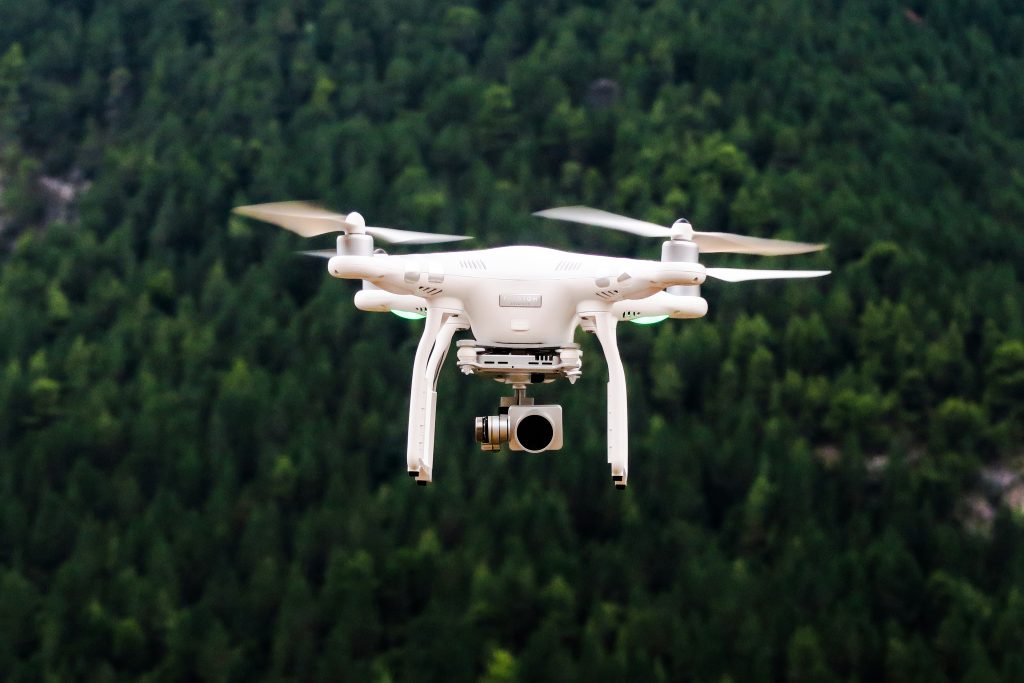
2nd PULL OPEN CALL for Farming, Forestry and Rural Challenges
To do what?
The PULL Open Calls for Forestry, Farming and Rural Challenges will award 6 successful applicants with up to 50,000 € to implement projects aiming to utilise drones and the services built around them for individual commercial needs and/or community-related issues. The following types of applications/solutions (but not limited to) are expected to be funded:
- Applying innovative solutions that leverage drone technology to address specific challenges faced by farmers, foresters, and rural communities.
- Sustainable agriculture, such as using drones to support regenerative farming methods, reduce the use of pesticides and fertilisers, and improve soil health.
- Logistics and supply chain management, such as for transporting goods and deliveries to remote areas, managing inventory and distribution, and monitoring supply chain operations using drones.
- Infrastructure monitoring and maintenance, such as using drones to inspect and maintain roads, bridges and other critical infrastructure in rural areas.
- Energy management, such as using drones to monitor and optimise renewable energy systems such as wind turbines and solar panels (agrivoltaics).
- Water management, such as the use of drones to monitor and manage water resources, including dams, reservoirs and irrigation systems.
- Public safety, such as the use of drones for crime prevention and law enforcement, disaster relief and response, and emergency medical services.
Who can apply?
ICAERUS is looking for agri-food producers, environmental monitoring entities and rural communities who are either SMEs or rural community/cooperative with a valid VAT or relevant registry number within eligible Horizon Europe countries. This include: Member States of the European Union, their outermost regions, and Overseas Countries and Territories linked to an EU Member as well as nationals of Horizon Europe associated countries.More information is provided in the Applicant’s Guide which is available on the ICAERUS website.
Examples of applications eligible for funding:
- Crop monitoring and analysis using drones: Applying software and hardware solutions for the use of drones to collect and analyse data on crops, such as growth rates, yield estimates and pest infestations.
- Precision agriculture with drones: Applying drone-based systems for precision agriculture, e.g., for mapping soil moisture, applying fertilisers and pesticides and managing irrigation systems.
- Monitoring forests and wildlife with drones: Applying drone systems for forest and wildlife monitoring, including habitat mapping, animal tracking and forest fire detection.
- Disaster management and risk reduction using drones: Apply drone-based systems for disaster management, e.g., for search and rescue missions, delivery of medical supplies and providing situational awareness in disaster scenarios.
- Environmental monitoring with drones: Applying drone-based systems for environmental monitoring, e.g., for mapping water quality, measuring air pollution and tracking changes in land use.
- Rural connectivity through drones: Applying drone-based solutions for rural community connectivity, e.g., for providing internet access or communication during natural disasters.
Applicants are encouraged to submit proposals based on their own ideas related to the topic of ICAERUS PULL Open Calls, however in order to be eligible, proposals need to address challenges in Rural Areas.
Timeline
The applications open on July 8, 2024, and closes on October 16, 2024. Sub-projects implementation will be divided into three phases: Design, Development and Market, lasting a total of 12 months, beginning February, 2025.
How to apply?
Register on the Open Call Hub to apply! You can find all of the details for the 2nd PULL Open Call on the ICAERUS website, at icaerus.eu/open-calls/.
Evaluation will be conducted by independent evaluators who will assess the quality of each application including the concept and feasibility, technology readiness and innovation development, Impact and exploitation, as well as organisational capacity and allocation of resources. Full evaluation criteria will be available in the Open Call Kit documents found in the Open Call Hub.
English is the official language for ICAERUS Open Calls. Applications submitted in any other language will not be evaluated. English is also the only official language throughout the whole execution of the ICAERUS project. This means all requested contributions must be submitted in English to be eligible.
Points of contact
For all the information related to ICAERUS Open Calls please state your question on the FAQ section on the ICAERUS Open Call Hub page opencallhub.eu or contact us at icaerus@opencallhub.eu.


